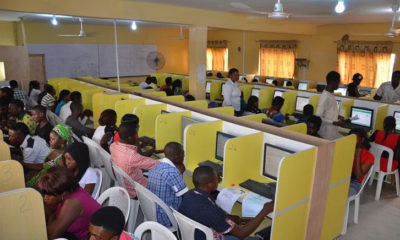In today’s fast-paced world, having digital skills has become a necessity for one to thrive effectively, either in business or career. The advancement of technology has no doubt transformed the workplace and business landscape which has placed a high demand on these skills.
In the past few years, digitization and automation have been the most often discussed technologies that firms/ Business owners are leveraging to transform the way they support core business activities which also helps them to adapt to a new and more virtual work style.
Without a firm command of digital skills in today’s world, there is only very little way to propel and remain competitive, as having one or more skills sets an individual or a business apart from the rest.
Before giving you a list of the top five (5) best digital skills to learn in 2023, let us define what digital skills are.
Digital Skills
UNESCO defines digital skills as those skills needed to use digital services, communication Applications, and networks to access and manage information.
Digital skills are also defined as skills needed to use computers and digital devices to access and manage information.
Here is a list of five (5) best digital skills to learn in 2023
1.) Cybersecurity
Cyberattacks has been predicted to be one of the biggest issues with modern-day businesses because a lot of them have taken their business to the online space.
Apart from businesses/organizations, the average everyday consumers/internet users are also not left out as they experience phishing schemes, data breaches, ransomware attacks, financial losses, etc.
This means the more we rely on the internet, the more we need good cybersecurity in all forms.
That is to say that learning this skill in 2023 will make one very sought-after because as more businesses continue to shift to offering online services, the demand for cybersecurity experts will continue to increase.
2.) Social Media Marketing
Looking at today’s world, a lot of companies/businesses now offer most of their services online, which makes social media marketing a perfect skill to learn in 2023.
This skill involves promoting a business on social media platforms through paid and unpaid means. It also involves placing social media ads, creating and sharing great content, organizing social media events, etc.
Most businesses desire a good social media presence due to the fact that it can create customer retention, form a brand community and generate leads.
Therefore, equipping oneself with this skill will make one very sought after, as most businesses are constantly on the lookout for people who can produce engaging social media content, manage business accounting effectively, drive traffic through ads, and implement diverse marketing strategies to boost sales/ traffic.
3.) UX Design
In simple terms, UX design is the process of creating products (digital or physical) that are practical and usable. It is also the process of creating products or services that provide meaningful experiences for users, involving many different areas of product development including branding, usability, function, etc.
Most businesses in today’s world understand that a UX design is important to meet the needs of conusmers, as a good design often helps a business to stand out in the marketplace also enhancing brand reputation.
This skill is no doubt a top skill to learn in 2023 as most businesses need UX designers to help increase conversions as more users/customers are likely to patronize a business or purchase a product that is appealing.
4.) AI Skills
This skill encompasses many key areas such as designing intelligent agents, machine learning algorithms and advanced artificial neural networks, etc.
Looking at the way a lot of jobs are been displaced by Artificial Intelligence machines, AI skills have become a top demand in the job market as most businesses are looking for ways to integrate AI into their operations.
For individuals looking to stay ahead in the job market, this is one skill to learn.
5.) Data Analyst
A data analyst job entails the gathering and interpretation of data to solve specific problems. In the past few years, 90% of the world’s data has been created and businesses are spending more than $180 million a year on big data analysts as these businesses rely on data to make critical business decisions.
This has seen Data analysts in high demand across all sectors such as consulting, finance, manufacturing, pharmaceuticals, government, and education. A report from McKinsey Digital on big data states that by 2023, the big data industry will be worth an estimated US$77 billion.
The report also states that 90 percent of the data available right now was produced over the last two to three years. That is how quickly the data is produced. What this implies is that the increase in the production of data will lead to an increase in the need for someone to analyze the data. That is where data analysts come into the picture.
Conclusion
It is no longer news that we are living in a highly digitalized economy, which is essential for one to acquire relevant digital skills to stay relevant and easily navigate jobs.
As technology advances, most jobs/ businesses are beginning to need some level of digital skills. Also having these skills prevents one from earning meager pay, as most current roles requiring digital skills often pay more than those that do not.
It is not far-fetched to say that those who take bold steps to learn new digital skills in today’s world, will be the ones to reap the benefits of long-term success.


 Billionaire Watch3 weeks ago
Billionaire Watch3 weeks ago
 Startups4 weeks ago
Startups4 weeks ago
 News4 weeks ago
News4 weeks ago
 News4 weeks ago
News4 weeks ago
 Bitcoin4 weeks ago
Bitcoin4 weeks ago
 Naira4 weeks ago
Naira4 weeks ago
 Forex3 weeks ago
Forex3 weeks ago
 Treasury Bills4 weeks ago
Treasury Bills4 weeks ago






















